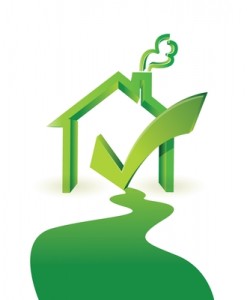Blog
Home Energy Checklist for Denver Homeowners
Interested in reducing your energy usage in your Denver area home? Here is a checklist to help you reduce energy use and save on your energy bills. The checklist is set up into 4 stages:
Right Away
- Adjust the temperature settings on your water heater to 120°F. This will help your household save energy and help avoid potential accidents from scalding showers or hot faucets.
- Check for energy settings on appliances. Many dishwashers and washing machines now have energy saving settings.
- Replace incandescent lights with compact fluorescents, which use about 75 percent less electricity and can be used in just about any fixture.
- Stay on top of cleaning filters in furnaces, air-conditioners, and heat pumps. This will make it easier for the unit to work while reducing the amount of energy needed on a regular basis
- Use a programmable thermostat to adjust temperatures.
This Week
- Replace shower heads and faucets with water efficient versions.
- Insulate the water heater and hot water pipes.
- Replace the caulking around windows and other openings around your house.
In the Next Month
- Attempt to seal common areas that feel drafty or whistle on windy days. Areas to think about might be pipes running into the home, cable and phone inputs from the outside or electrical panel hookups.
- Schedule or conduct a home energy audit according to the Home Energy Saver Website.
Within the Year
- Ensure the home, including walls and attics, are well insulated. Areas that are not insulated should be assessed by a contractor who can upgrade insulation levels.
- Replace any aging windows with energy efficient versions for better efficiency and to take advantage of available incentives or rebates.
- As appliances age and deteriorate, replace them with newer, more energy efficient models. Some will even come with efficiency related rebates.
- Schedule regular maintenance of heating and cooling systems to improve the performance of the systems.





